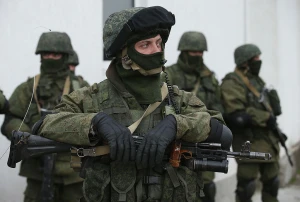
Money for war: Give Ukraine Russian frozen assets
Political discussions on providing aid to Ukraine for the next year continue in the West
Politicians who oppose this aid appeal to the argument that why should we give anything to Ukraine? Of course, there is something to be said for that, but that's not what I'm talking about here.
“You don't want to give your money? Then let's give Russian money, which you have frozen a lot of. We are talking about billions of dollars or euros.”
At the moment, there is information that the G7 is developing a mechanism for the frozen Russian assets to be transferred to Ukraine, although, in my opinion, there is nothing to develop, and it should have been done long ago.
There are several obvious facts.
A certain state attacked Ukraine, this state has already caused huge purely economic losses, and by all standards, it must be held accountable for this. Including money.
This state has assets that will be transferred to Ukraine in any case following the results of any normal court. Of course, you can play justice for decades, but the result will be the only possible one.
“Ukraine needs funds that can be raised in this way. There is a UN General Assembly decision that Ukraine will be paid reparations. So start paying them, and all the legal details can be resolved later.”
It's understandable why they don't do this because there are huge sums of money in the West belonging to very dubious regimes. And they are very interested in ensuring that various dictators and aggressors continue to bring their money there. But in this case, we are talking not just about dubious regimes, but about a regime that attacked a sovereign UN member state, which was condemned by the majority of UN members. So much for the grounds that may later serve as a deterrent to aggression by other regimes. While Russia can live without frozen assets, smaller autocracies may find it less pleasant. And for them, the freezing and confiscation of assets can be a real argument that will keep them from waging aggressive wars.
About the author. Petro Oleshchuk, political scientist
The editors do not always share the opinions expressed by the authors of the blogs.
- News













































